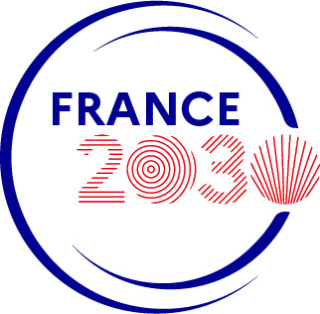Partner institutions: CNRS, Inria, Université Grenoble Alpes, Université Paris-Saclay,
IMT (Institut Mines-Télécom), Sorbonne Université, Université Claude Bernard Lyon 1, Université de Lille, Université Toulouse III,
Nantes Université, Grenoble INP, Université Lumière Lyon 2, ENIB, Université de la Réunion, Université de Technologie de Compiègne,
CESI, ENAC, ENSAM, Université Gustave Eiffel, Université Panthéon Sorbonne, Université de Rennes, Université de Rouen, Université de Strasbourg, Université de Technologie de Troyes.
Contact: pc5 [at] pepr-ensemble.fr
3 priority themes:
-
Methods and tools for measuring impact of collaboration
-
Legal, ethical and philosophical aspects of collaboration
-
Environmental aspects
Goal: Funding of 3-5 Ph.D. theses
Theme 1: Methods and tools for measuring impact of collaboration
We must establish a framework for measuring the impact of collaborative technology on human users, including individuals and groups as well as human-algorithm (“intelligent agent”) relationships. Methods must be deployable for diverse user populations, over multiple time scales, and assess different types of impact, including the risk and likelihood of harm to human users. Key measurement dimensions include determining positive, neutral or negative impact with respect to:
-
Time scale: immediate, intermediate and long term;
-
Population: individual, group or corporate;
-
Risk: balance likelihood of harm and size of negative impacts; and
-
Measures: qualitative or quantitative, in context or in general.
Keywords: impact, measurement, psychological and sociological factors
Theme 2: Legal, ethical and philosophical aspects of collaboration
Collaboration technologies raise important ethical issues, particularly with respect to technological control, citizen’s liberty and decisional autonomy, digital democracy, governance of and by digital technologies, and the control of work or ordinary activities. This echoes the question of the legal framework organizing privacy, data protection, interoperability, security, and AI responsibilities, but also more classical questions such as the property of the collective intellectual productions especially in light of the EU member States of Directive 2019/790 on copyright and related rights in the Digital Single Market. Finally, philosophical debates and reflections posed by the Humanities explore how far humans can be helped, assisted, facilitated in their tasks and activities, while remaining “human”. In particular, it is important to identify how human’s reflexivity, critical thinking and its own ethical deliberation can be promoted to increase their agency during their interaction with numerical tools.
Key challenges include identifying the ethical responsibilities in human-machine collaboration, and clarifying legal issues related to the impact of both collaborative and intelligent systems on individuals and society. Finally, it is crucial to address regulatory concerns related to privacy, copyrights, agency and interoperability.
Keywords: ethics, digital law, philosophy, epistemology, digital anthropology, anthropology of new technologies
Theme 3: Environmental aspects of collaborative technology development
Echoing in every social and ideological space, environmental issues have become central in the agenda of information and communication technology sciences, as well as in computer science and robotics. The proliferation of technological devices aiming at facilitating collaboration does not only raise questions about the behavior and representation systems of users and usage models: the ecological impact (carbon footprint, exploitation of rare minerals, energy and material pollution, etc.) is also increasingly considered. Research on these dimensions of the current digitalisation of modern societies is urgent and crucial, and must explore the complexity of the configurations and issues that the environmental crisis entails in the field of digital technologies, which moreover maintain an ambivalent relationship with ecology: as sources of pollution on the one hand, digital and collaborative technologies carry and provide IT solutions on the other. The aim of this Ph.D. thesis research is therefore to carry out a reflection, based on solid empirical work and a reliable and robust methodology, on the environmental impacts of digital technologies, considered in a general way (on the background of the movement of digitalisation of human societies) but in a specific approach (with a particular disciplinary or methodological angle) which crosses the problems of the SHS, the STS and the environmental sciences.
Keywords: ecological crisis, collaborative agents, societal impact, socio-cultural approaches






